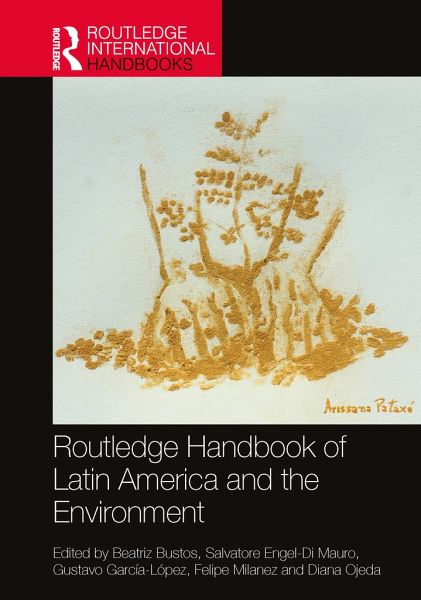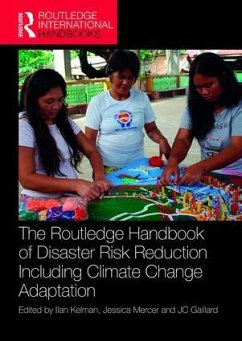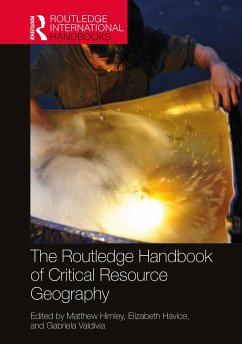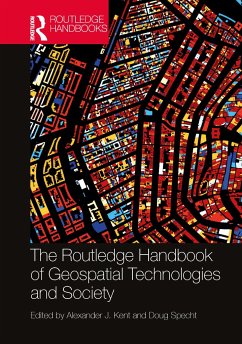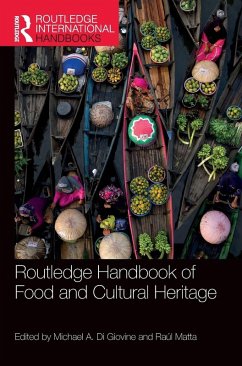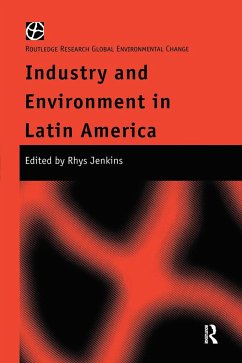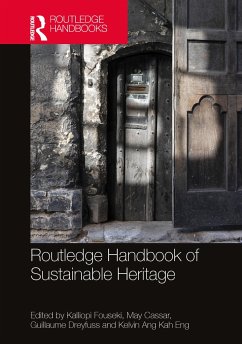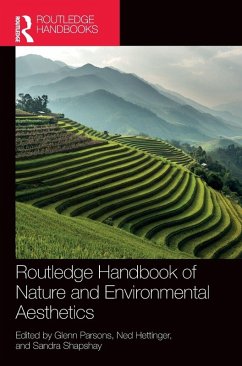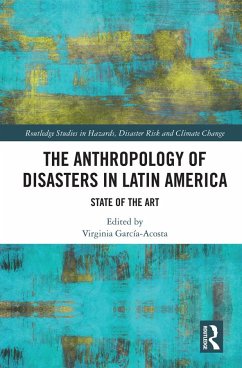Gebundenes Buch
Routledge Handbook of Latin America and the Environment
Versandkostenfrei!
Versandfertig in 1-2 Wochen
Weitere Ausgaben:

PAYBACK Punkte
119 °P sammeln!




The Routledge Handbook of Latin America and the Environment provides an in-depth and accessible analysis and theorization of environmental issues in the region. It will help readers make connections between Latin American and other regions' perspectives, experiences, and environmental concerns.
Beatriz Bustos is an associate professor in the Department of Geography at the University of Chile. Her research focuses on resources geography and the sociopolitical transformations that exploitation of natural resources produces in rural communities. Her work ranges from examining the geography of commodities such as salmon, copper, wine, agro-industries, coal, lithium and green hydrogen, to rural livelihoods under neoliberal extractive economies. More recently she is researching ideas of rural citizenship. Salvatore Engel-Di Mauro is Professor at the Department of Geography and Environmental Studies of SUNY New Paltz (US), teaching courses on physical and people-environment geography as well as on socialism. He is Senior Editor for Capitalism Nature Socialism and Reviews Editor for Human Geography. He has recently published Socialist States and Environment and, with George Martin, Urban Food Production for Ecosocialism. His research areas include soil contamination and acidification, urban food production, and socialism and the environment. Gustavo García-López is an engaged researcher, educator, and apprentice organizer, from the islands of Puerto Rico. He has experience in transdisciplinary social-environmental studies. His work is situated at the intersection of ecology and the political, postcolonial/decolonial, and Latin American and Caribbean studies. He engages with commons and commoning, autogestion, and environmental and climate justice issues. He is part of the JunteGente collective in Puerto Rico, the Post-Extractive Futures initiative, the Climate Justice Network and the Undisciplined Environments blog. He lives uprooted from his lands but finding home and guiding stars in his daughter Maia. He is held in life by broad networks of care and nourishment, of people, spirits, memories, and ecologies. Felipe Milanez is Assistant Professor at the Institute for Humanities, Arts and Sciences Profesor Milton Santos, at the Federal University of Bahia, Brazil. Author of Memórias Sertanistas: Cem Anos de Indigenismo no Brasil and Guerras da Conquista, with Fabrício Lyro, his work and activism focus on the violence against environmental defenders, the genocide of indigenous peoples and ecocide. More recently, his research dedicates to learn with indigenous art, anti-colonial epistemologies and political ecologies from Abya Yala. Diana Ojeda is Associate Professor at Cider (Center for Interdisciplinary Development Studies) at Universidad de los Andes in Bogotá, Colombia. Her work analyses processes of "green grabbing", dispossession, and state formation from a perspective that combines feminist political ecology and critical agrarian studies. More recently, her research has focused on pesticide use in Colombia.
Produktdetails
- Verlag: Routledge
- Seitenzahl: 500
- Erscheinungstermin: 31. Mai 2023
- Englisch
- Abmessung: 250mm x 175mm x 31mm
- Gewicht: 1034g
- ISBN-13: 9780367361860
- ISBN-10: 0367361868
- Artikelnr.: 67400624
Herstellerkennzeichnung
Libri GmbH
Europaallee 1
36244 Bad Hersfeld
gpsr@libri.de
Für dieses Produkt wurde noch keine Bewertung abgegeben. Wir würden uns sehr freuen, wenn du die erste Bewertung schreibst!
Eine Bewertung schreiben
Eine Bewertung schreiben
Andere Kunden interessierten sich für




